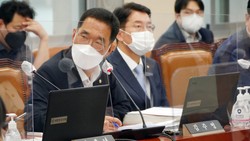On January 11th, the amendment to the Act on the Management of Public Institutions passed the plenary session of the National Assembly. As the revision passed the National Assembly, workers who have served in public enterprises or quasi-governmental institutions for more than three years can be appointed as non-executive directors. Rep. Kim Ju-young of the Democratic Party of Korea, who led the passage of the bill, expressed expectations on the same day. He said, "As the introduction of the system passed the National Assembly, there will be various positive changes such as establishing participatory labor-management relations and governance of public institutions." However, some are expressing concerns, saying that the system is not in line with Korea's economic system. Then, what exactly is this system and what are the expected effects and concerns?
What Is the Bill About?

On January 11th, the partial amendment to the Act on the Management of Public Institutions proposed by Rep. Kim Ju-young passed the plenary session of the National Assembly. Mainly, the bill ensures that workers participate in management. Workers' representatives can directly participate in the corporate board of directors to make important corporate decisions with management. Labor union representation who have served in public enterprises or quasi-governmental organizations for more than three years can be appointed as a non-executive through the recommendation of a worker representative or the consent of a majority of workers. Quasi-governmental institutions here refer to workplaces with a staff of more than 50 people, a total income of more than 3 billion won, assets of more than 1 billion won, and less than 50% of their own income ratio. The method of the recommendation of a worker representative or the consent of a majority of workers can be autonomously selected according to the individual characteristics of each institution. The non-executive director has the right to speak and exercise voting rights in the same way as general directors on the board. The term of a non-executive director is two years and can be reappointed after on a yearly basis. Even if they are non-union members or non-regular workers, they can be appointed as non-executive directors if they meet certain qualifications. In summary, regardless of the number of board members, one of them must be a worker representative. The scheduled public institutions include 36 public enterprises such as Korea Gas Corporation and Korea Electric Power Corporation and 95 quasi-governmental institutions such as the National Pension Service and the Korea Tourism Organization. This system has been implemented by the Seoul Metro since September 2016 through ordinances and has now been expanded to all public institutions due to this amendment. Originally, the board of directors had a structure in which executives were the main decision makers and workers followed their decisions. However, due to this new system, workers can also participate in the company’s main decision-making while exerting a direct influence on management rights. Therefore, it is a big change in companies’ position.
The Expected Effect of the Bill
The expected effect that can be obtained from this system is the improvement of fairness and transparency of public institutions. Previously, there were many criticisms that the board of directors did not play its role fairly. This is because the Ministry of Economy and Finance usually decided on matters related to the budget and manpower of public institutions. However, the introduction of this system allowed labor union representations to directly participate in the board of directors, allowing them to object to organizational decisions or reflect workers' voices in decisions. Through this, it can rationalize management and improve fairness. In addition, workers' participation in the decision-making process can lead to strengthening monitoring functions, minimizing corruption in institutions, and enhancing transparency. In fact, there are also research results that show that this system has increased transparency in management. According to a survey of 49 non-executive directors from 16 institutions in Seoul, which introduced the system in 2020, many responded that there were positive changes in management transparency, public interest, and democracy in the operation of the board of directors. In addition, a positive effect is expected that the system can lead to cooperation between the management and the labor union and break away from the current conflicting labor-management relations. Rep. Kim Ju-young of the Democratic Party of Korea, who proposed this system, said, "It is expected that, as workers who are practical stakeholders in the management of public institutions participate in decision makings, checks and balances will be restored and conflicting labor-management relations will be improved." On January 11th, the Federation of Korean Trade Unions also expressed expectations saying, "We will be able to provide better quality public services in the end by correcting wrong management decisions and governance that have made public institutions sick."
Concerns of the Bill
Inconsistency with Korea's Economic System

The representative concern about the system is that it is not in line with Korea's economic system, which was strengthened after a nationwide survey by the Korea Enterprises Federation in which 57% of 200 professors of Economics and Business Administration agreed. Among the 49 major OECD countries, 13 European countries and China have implemented this system. The characteristic of some European countries is that they are based on “stakeholder capitalism.” Under stakeholder capitalism, financing is made through local financial sectors, residents, and workers. Therefore, they are deeply interested in corporate management. In addition, companies have developed a culture of labor-management consensus, with various stakeholders such as financial institutions and workers being valued. Therefore, even if workers participate in the board of directors, there is no big problem. However, Korea traditionally has adopted a form of British-American shareholder capitalism, in which 90% of the companies are joint-stock companies. Companies receive a lot of funding from shareholders. Since the appointment of the board of directors in that system is a shareholder's right, the introduction of this new system can only be seen as an infringement of shareholders' rights. In conclusion, countries that have introduced the system, such as those in Europe, have different economic systems from Korea, and none of the countries that adopt British-American shareholder capitalism like Korea have introduced it. In the end, the system can be seen as inconsistent with Korea's economic system.
Worsening Decision Makings

Another concern about the system is that it can negatively affect decision-making. Many countries have implemented the system, and Germany is the originator of it. Germany has expanded its introduction to all public and private workplaces beyond its initial introduction which targeted more than 1,000 mining and steel companies in 1951. However, according to the Korea Economic Daily, German economic research institute IW (Institut für Wirtschaft Köln) conducted a survey in 2006 in which 48.8% of the respondents said, "The participation of labor union representatives slows the decision-making process." On the contrary, only 11.3% of the respondents said they accelerated the decision-making process. The transparency and fairness of management can be improved by participating in the decision-making process by labor union representatives, but the speed of decision-making is delayed. In particular, as labor-management relations have a conflicting structure in Korea, the board of directors can degenerate into a labor-management conflict, which will hinder rapid decision-making. It has also been pointed out that the non-executive director is both a labor union member and a member of management, so their interests may conflict in making decisions. In fact, on January 11th, the Korea Enterprises Federation pointed out, "The status of directors who are members of the labor union and management can cause conflicts of interest, so it should be made clear that they withdraw from the labor union during their terms." Furthermore, if the decision-making process is hindered, the competitiveness of a company may weaken. For example, if there is an inevitable restructuring to improve the corporate financial structure, non-executive directors will oppose it because they represent workers' positions. Therefore, the speed of decision-making is bound to slow down, and the process is prolonged, which can consequently weaken the competitiveness of the company.
Will It Spread to Private Companies?
In November 2020, the Moon Jae-in government reached an agreement on this system through social dialogue at the Economic, Social & Labor Council, a social dialogue organization. Based on this, the system is one of the top 100 national tasks, and the Moon Jae-in government has set the goal of spreading the system to private companies since 2017. Therefore, the system is currently set to be applied first only to public institutions, but it is predicted that it is likely to expand to private companies soon. However, regarding the system, the business community points out that it should not lead to legislation expanded to private companies. If it expands beyond public institutions to private companies, the problems currently expected might lead to private companies, reducing their corporate competitiveness and further damaging the Korean economy. In fact, on January 11th, the Korea Federation of SMEs (Small and Medium Enterprises) said, "If the system is introduced to private companies, it will certainly undermine the competitiveness of Korean companies, such as hindering the speed and expertise of management decisions." The Korea Enterprises Federation also mentioned on the same day, "If the system is introduced to private companies, it could have a major impact and serious side effects on our market economy, so it should not lead to legislation expanding to private companies in the future." There are also some people saying that if the system is expanded to private companies, shareholders' rights could be violated. This is because in principle, the appointment of the board of directors is the right of shareholders, as discussed above. Meanwhile, some point out that it is an excessive concern because the National Assembly's legislation only targets public institutions and does not target the private sector. However, it is true that there are many concerns, including the small and medium-sized business community and the business community, as to whether the system will spread to private companies.
Rep. Kim Ju-young of the Democratic Party of Korea mentioned that the system is based on positive expectations that it will improve fairness and transparency of public institutions through workers’ direct participation in decision-making. However, some are criticizing that the system will hinder rapid decision-making and that the system itself is not in line with Korea's economic system. Whether it will expand to private companies is also controversial. President Moon Jae-in said on January 12th, "The system introduced to enhance fairness and transparency of public institutions will serve as an opportunity to change the management culture of our society, so every effort to prepare and set an example from public institutions will be needed." As there is some time left until the actual implementation, preliminary measures will be needed to prevent problems that are currently of concern. If it is necessary to review, withhold, and supplement, it will have to be achieved through social consensus as there are many controversies. CAH hopes that the system can be implemented in a positive direction.

